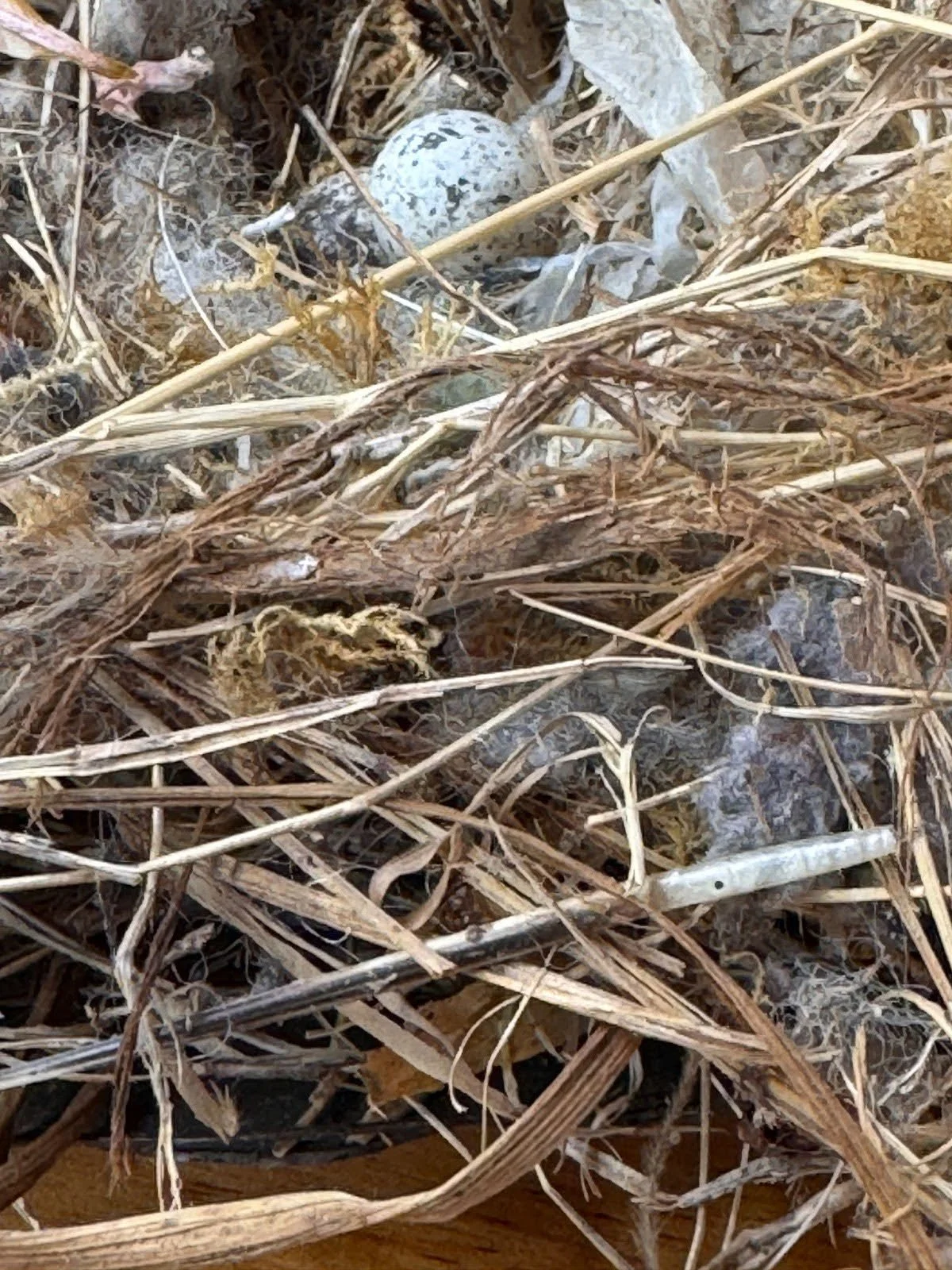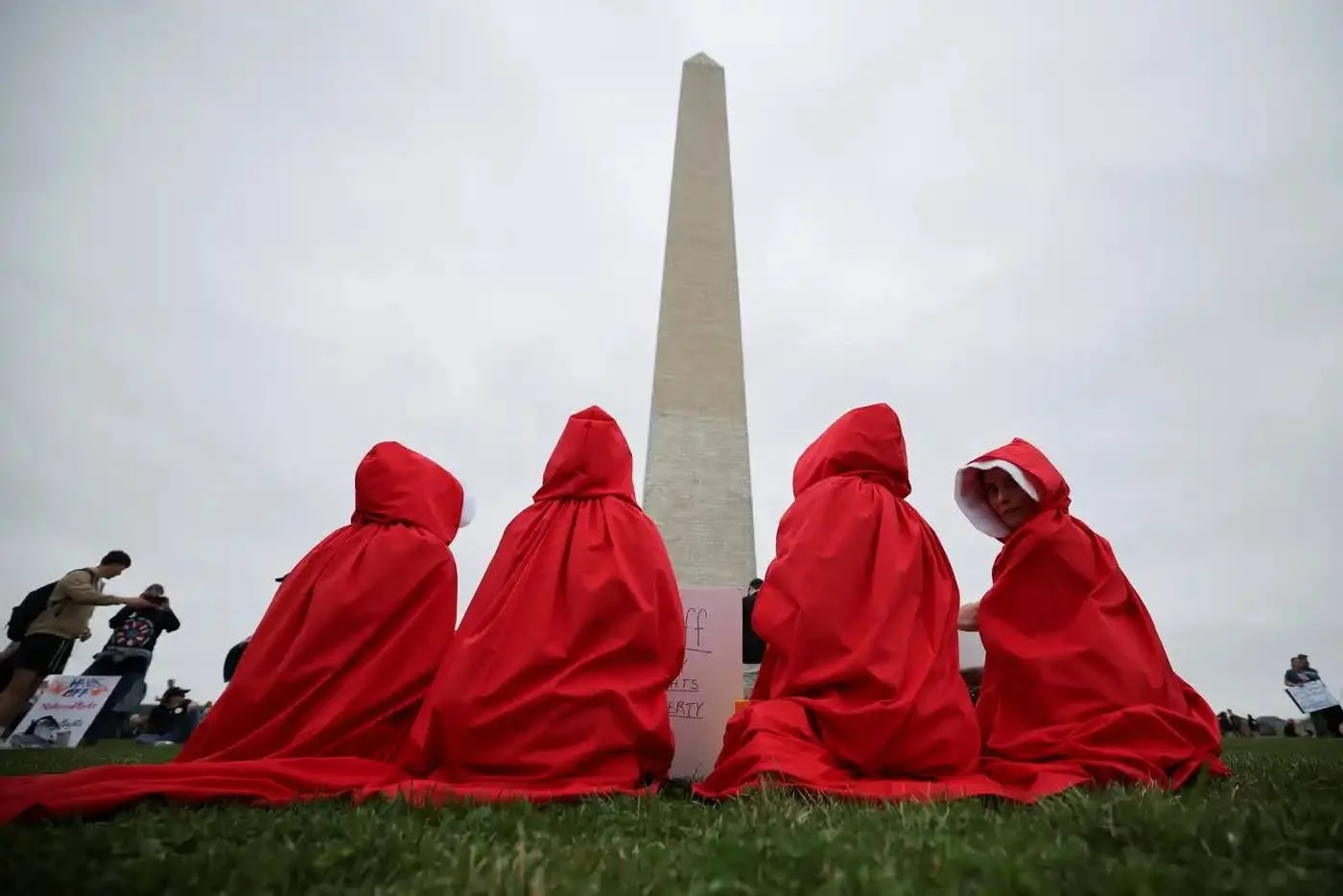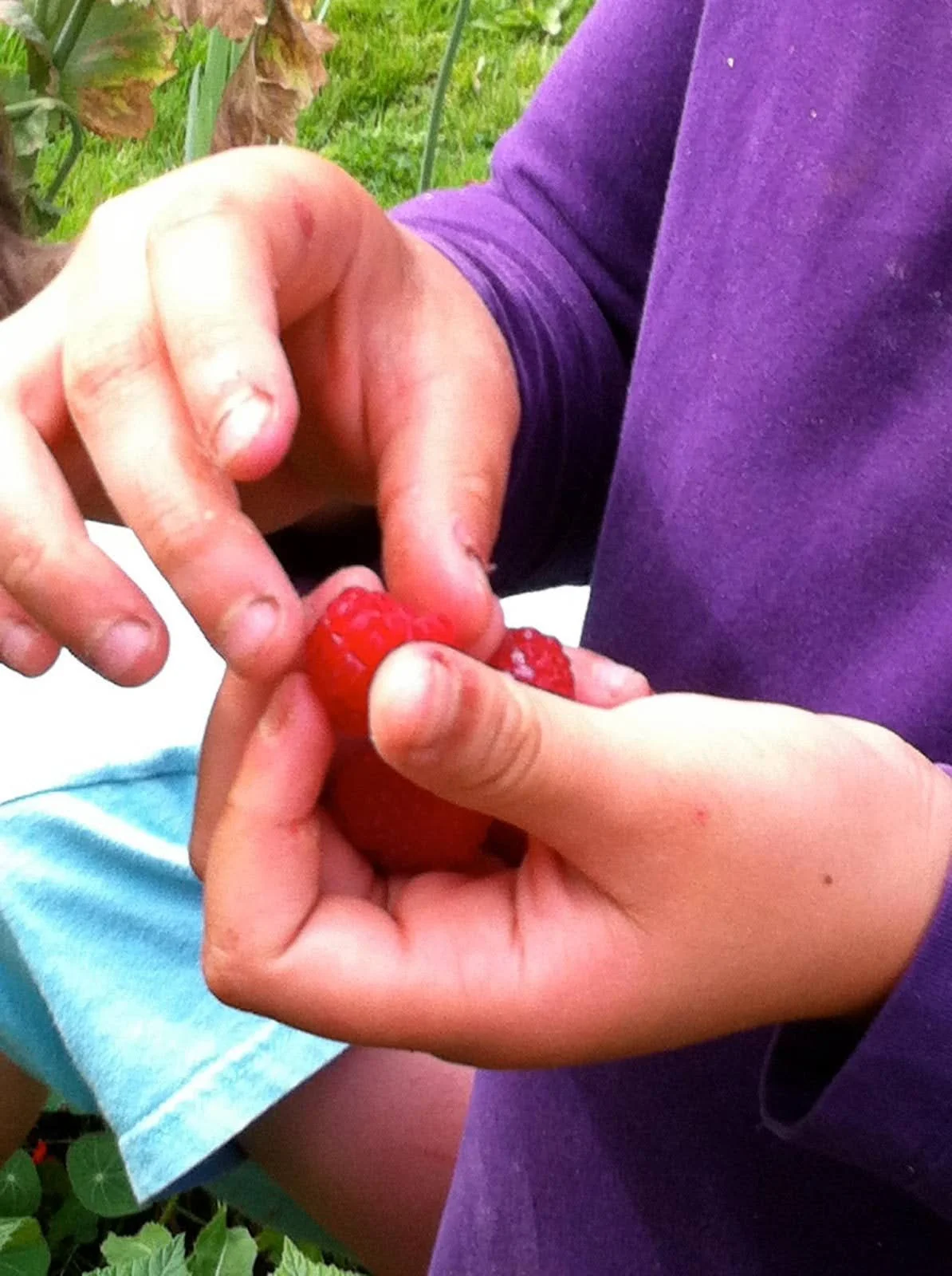NOTICINGS: Parallel times past and present
Looking at trouble, pushback, what we know now, and what we can continue to do.
If there must be trouble, let it be in my day, that my child may have peace. Thomas Paine, The American Crisis, 1776-83
I took this picture many years ago. The four-year-old was sitting with her parents in a NYC cafe. Her fathers and I fell into conversation. Adopted, one told me. The proud dads smiled. I asked permission to photograph her. Her tender fingers against the marble.
Am I out of my mind connecting Tom Paine’s anguish about his child’s future in 1776 and this child, now a teenager in the 21st century? Are not the situations of Paine’s American crisis and our present American crisis close parallels?
The trouble presented by Trumpism, planet Earth, and our human nature are as entangled now as in Paine’s day, but with a distinct and urgent difference. Today’s foundational changes have released us from moorings we can barely articulate. “Earth’s mightiest forces have forsaken geological time and now change on a human scale,” writes Andri Snær Magnason.
I loved looking at those young fingers. But I did not understand then, as I do today, see her as a child who had been an infant in trouble. When she was born, she had no parents to hold her. She had no home. Then she was rescued. Saved! Yet now she’s in trouble again, and the security that appeared to be hers has been swept away. Our nation is riven by uncertainty and fear. Global movements dominate daily life up close and personal and on screens everywhere.
Enter trouble.
Like we all are, this child is endangered. Her parents’ marriage is at risk of continuing to be legal. Throbbing throughout individual lives is a constant pulsing of Earth and nature, sending urgent cries signaling unspeakable dissemblings.
These troubles in America and planet Earth are no more separate from one another than a zebra from its stripes. The trouble of past entanglements, as Tom Paine understood, was the King’s power and the colonized people living under the whims of a monarchy. Today, the trouble of the current entanglements includes global warming, species extinction, and technologies disrupting the stability on which we build our lives.
But trouble hasn’t ever been resolved with a forever done deal. The howl resounding throughout the country now is the pain of coming up against hard, incontestable facts. We thought we had done equal rights and justice for all. And wouldn’t recycling and driving a Prius just do it?
We have come face to face with boundaries that we thought we knew: the rule of law, the right to vote, and safety from flash floods and tornadoes. The entanglements of our troubles are braided together like a bird’s nest. Each piece essential. Each piece alone, fragile.
It is hard, sometimes, to remember that trouble’s signal opens a window, a heart, a mind, to take a wider view so breath can enter. Without breath, space for play, imagination, and invention is impossible. Without the impossible, possible doesn’t happen.
Murder in the streets ruled in 15th-century Italy. Shifting alliances and chronic instability were the norm. (Their troubles are easy to bear! They don’t wake me in the middle of the night.) Competing city-states were splintered, war‑torn, and politically fractured. Recall the Montagues and the Capulets. (Yes, it could have been Fifth Avenue.) To save Italy as a nation, and bring about unity and cohesion, the only hope, some thought, was to revive Greek and Latin, study the classical philosophers, and make art. Classical memory was leveraged to imagine political unity.
When I read Machiavelli — the humanist, not the cartoon figure of brutal power — who makes a direct link between the love one has for one’s lover, spouse, child, and friendship, to love for country, the relief I feel is huge. Are you, like me, reassured when contemporary thinking turns out to reflect (or link!) to the thinking of serious, experienced people who are our ancestors?
Love, wrote Machiavelli, is the foundational step for the love of country. It is love that leads to meeting political necessity with loyalty and virtue. Political unity through the humanities was a centuries-long project. It was ultimately successful.
Enter citizen pushback then.
Tom Paine wrote The American Crisis. He saw trouble and stood up to it. Paine spread the word to renounce the King. And that story, among others, has continued to be told as if it were a done deal.
The promises made in 1776 — a new nation built on equality, liberty, and natural rights; in 1930 — a safety net — retirement security, unemployment benefits, protections for the vulnerable; and in 1964 — outlawed racial segregation and affirmed equal voting rights, are broken, weakened, and/or dismantled right now before our very eyes.
Enter citizen pushback now.
We, the People, are pushing back. Through our innate needs for meaningful connection, we are empowering solidarity across the country.
Heather Cox Richardson situates our present by telling us about what we did in the past. Recall, she says, the politically powerful and successful fight against the slave powers. Laughing, she recounts how “the wide-awake boys bored in western towns turned out for torchlight parades.” Picnics! Meet up with girls! “It was lots more fun to be a Republican in the 1850s than it was to be a Democrat, who were so angry and nasty,” says the historian who knows her stuff. Love of country persevered. People knew what they wanted to protect. The union held.
Now, serious, purposeful pushback pokes fun.
Credits: Carlos Barría, Reuters; Fox 4 News Dallas-Fort Worthl; Abna24My friend Mimi Stokes Katzenbach sees an inevitable downfall of the authoritarian wannabes. I agree.
Enter what we know now, and what Tom Paine and friends did not know over 225 years ago.
It has taken roughly two centuries since 1776 for science to demonstrate that humans carry an ancient biological toolkit.
So what good does knowledge of this do us now in this time of crisis? By reviving and integrating our biological systems, shaped long before recorded history, we will make our future possible.
Aggression is obviously a driver in spectacles of entertainment politics; the renamed Department of Defense is now the War Department! Yet in our biological toolkit, conflict resolution and social bonding are deeply rooted in our bodies. As 15th-century leaders leveraged the humanities to build a unified Italy, we could leverage our biological toolkit, which is ever ready to seek connection — friendships, partnerships, communities — as a strategy for survival. Cooperation, imagination, and resilience are, in fact, what got us here. We are wired to prefer harmony.
Pivot from fast to slow.
Can we put aside the satisfying speed of Amazon Prime and AI, which deliver the immediate fix we are accustomed to?
Are we willing to prepare ourselves and teach our kids to think in the long term?
Can we get past our howls of dismay that the progress made in the history that made America America has not stayed saved? Let’s not stay stuck in dismay.
Will we adopt the mantle of Good Ancestors, which we will be soon enough, to protect their future?
Prepared or not, we are here now. It is for us to learn how to live with entanglements. “There are other things in the room, if only we knew how to access them,” says Bayo Akomolafe. “It calls us to sit with the trouble and resist the urge to rush toward resolution, remaining open to deeper, slower transformations. Times are urgent, we must slow down.”
And still, activists can stand their ground and at the same time, one could respond to Akomolafe’s call to slow down. We did it for slow food, why not for ourselves?
What do activists do? How about this?
-Call out what we see happening
-Every possible tool is used to poke fun
-Envision how our—yours and mine—government, and therefore, our entire society, could be restructured (for instance: work)
-Activists are Good Ancestors
I take heart from the large, complex Bronze Age societies that flourished for centuries without evidence of kings, palaces, or centralized domination. They left evidence of play, imagination, and inventions. They got what they wanted.
Tom Paine’s desperate ride to outwit the British by instantly inventing a new plan to save a town from attack made certain that everyone he knew could stand up and say what they wanted.
Activists meet times of unremitting crises with sacrifice and strong hearts. Our embodied biological systems enable us to make a likable future possible. So I have turned from the howls of dismay. Give me the trouble of our times. Certainly, it is a handful to live in uncertainty, complexity, and relationality. The entanglements of the technologies, the Executive Orders, and Earth’s response to human decisions require nothing less than grieving, push back, dancing, and the long view.
Tom Paine didn’t know how it would all turn out, but he took on the trouble to protect and reimagine another kind of government that he and his had known for generations.
We, too, can reimagine a future that fits our time now.
Notes:
Andri Snær Magnason, On Time and Water, Forlagiō, 2021
What the Heck Just Happened? Joanne and Heather Chat
Ada Palmer, Inventing the Renaissance, Myths of a Golden Age, Head of Zeus, Ltd. 2025
https://www.newsweek.com/trump-department-war-hegseth-defense-order-live-updates-2125101
David Graeber and David Wengrow, The Dawn of Everything: A New History of Humanity, Picador Paper, 2023







